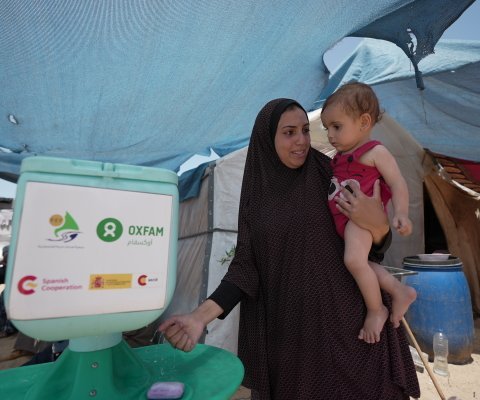Hundreds of thousands of people affected by Pakistan’s 2012 floods disaster still need urgent help both to meet their immediate needs and to rebuild their homes and livelihoods in what has become a prolonged and invisible disaster, said a grouping of over 200 Pakistani and international humanitarian organizations on Monday.
Almost five million people were affected when heavy rains flooded parts of Baluchistan, Punjab and Sindh from mid-September 2012. Persistent floodwater meant many were homeless for months, unable to resume their usual way of making a living. Over a million people who did return to their villages found their homes too badly damaged to inhabit at the end of 2012, a UN survey found.
Flood victims have been forced into high level of debt and at increased risk of exploitation, ill health and long term destitution. Women, children, elderly people and flood survivors with disabilities are most at risk, warned the aid organizations.
Financial resources for critical relief and recovery work have almost dried up, said members of the National Humanitarian Network and the Pakistan Humanitarian Forum in a joint briefing published on Monday.
“Many flood survivors are poor farming families who missed the winter sowing season and have gone deeper into debt,” said Dr. Manzoor Awan, deputy executive director of Sungi Development Foundation and chairman of the National Humanitarian Network. “If they miss the next one too, it’ll be a second disaster for them.”
The aid organizations said that Pakistani authorities had provided vital life-saving assistance to tens of thousands of families. Additionally, although the federal government had avoided calling for international donor assistance, several donors had responded generously to requests from the UN and other aid organizations to support their flood response. However, the overall relief and recovery effort had not matched the scale, scope and duration of the disaster.
“We need sustained efforts by Pakistani authorities, international donors and aid organizations so that flood survivors can keep their families safe and healthy now, and get timely support to rebuild their livelihoods, homes and communities,” said Fayaz Ahmed, country director of Islamic Relief and chairman of the Pakistani Humanitarian Forum.
“A strong recovery and reconstruction strategy should be followed by intensified work led by the government to ensure Pakistanis are better prepared for future disasters,” said Arif Jabbar Khan, country director of Oxfam. “We need to accelerate current efforts. With climate change set to make floods and droughts more frequent and severe, the next government should make this a priority.”
ENDS
Note to editors:
1. The National Humanitarian Network is an alliance of 159 Pakistani NGOs working to provide emergency relief and promote disaster resilience.
2. The Pakistani Humanitarian Forum is an alliance of 53 international NGOs working to provide emergency relief and promote disaster resilience in Pakistan.
3. The Monsoon Humanitarian Operations Plan, launched by the UN in September 2012, requested $168 million from international donors to assist flood affected communities. By 1 March it was only 30 percent funded. Activities to provide shelter were only 5 percent funded, health activities 6 percent funded, and water and sanitation projects just 8%.
Oxfam is an international confederation of 17 organizations networked together in more than 90 countries, as part of a global movement for change, to build a future free from the injustice of poverty.





